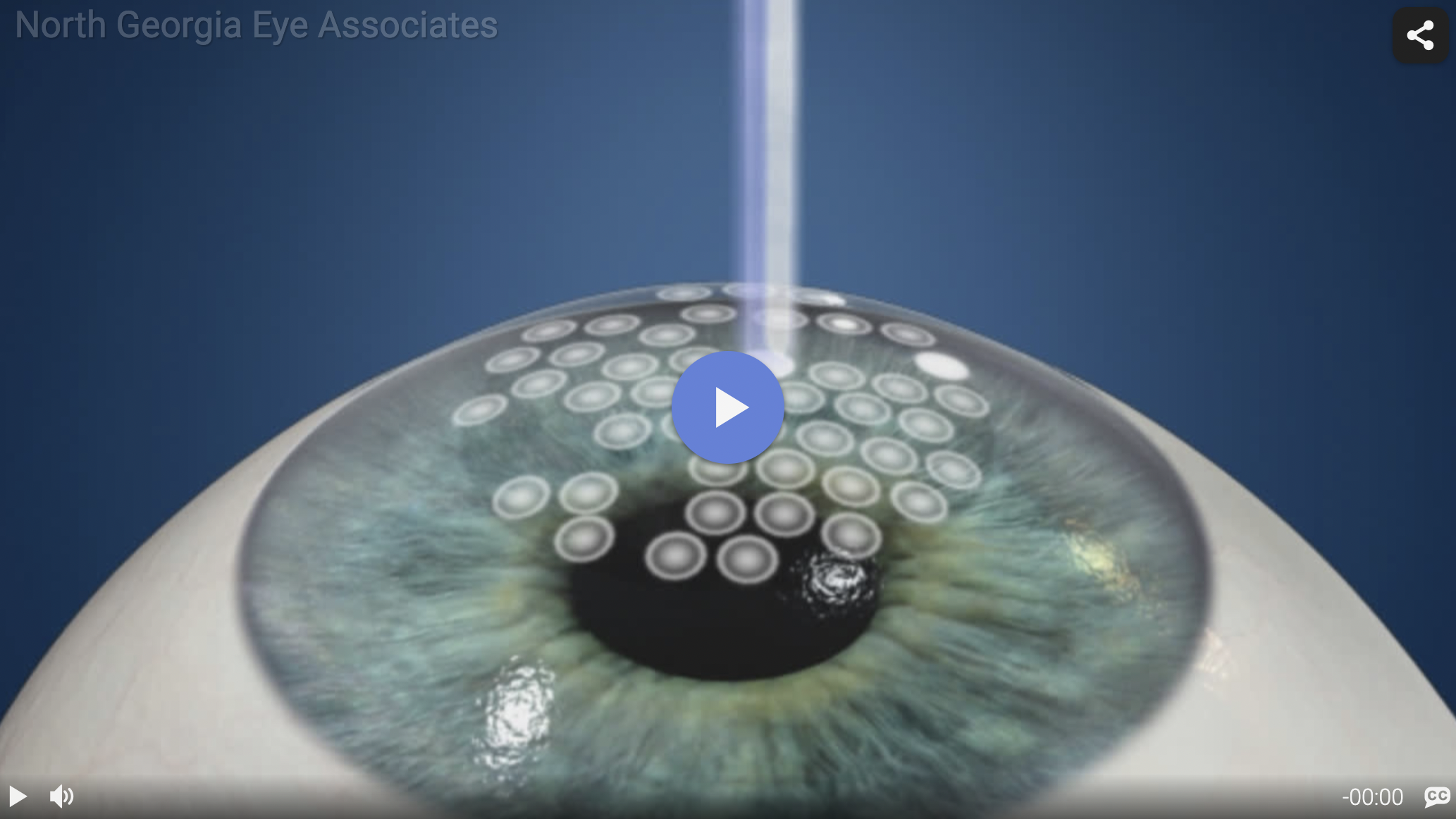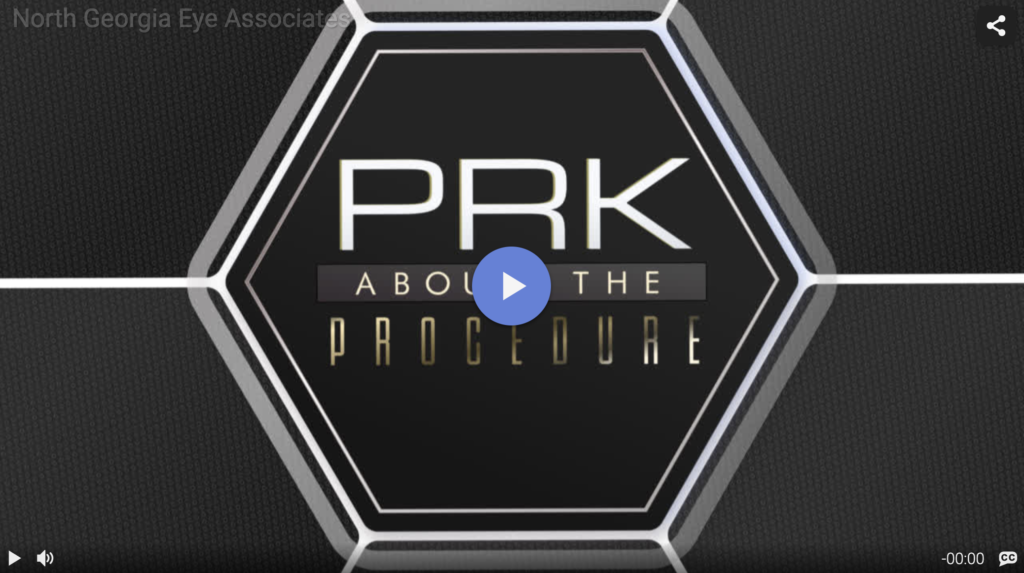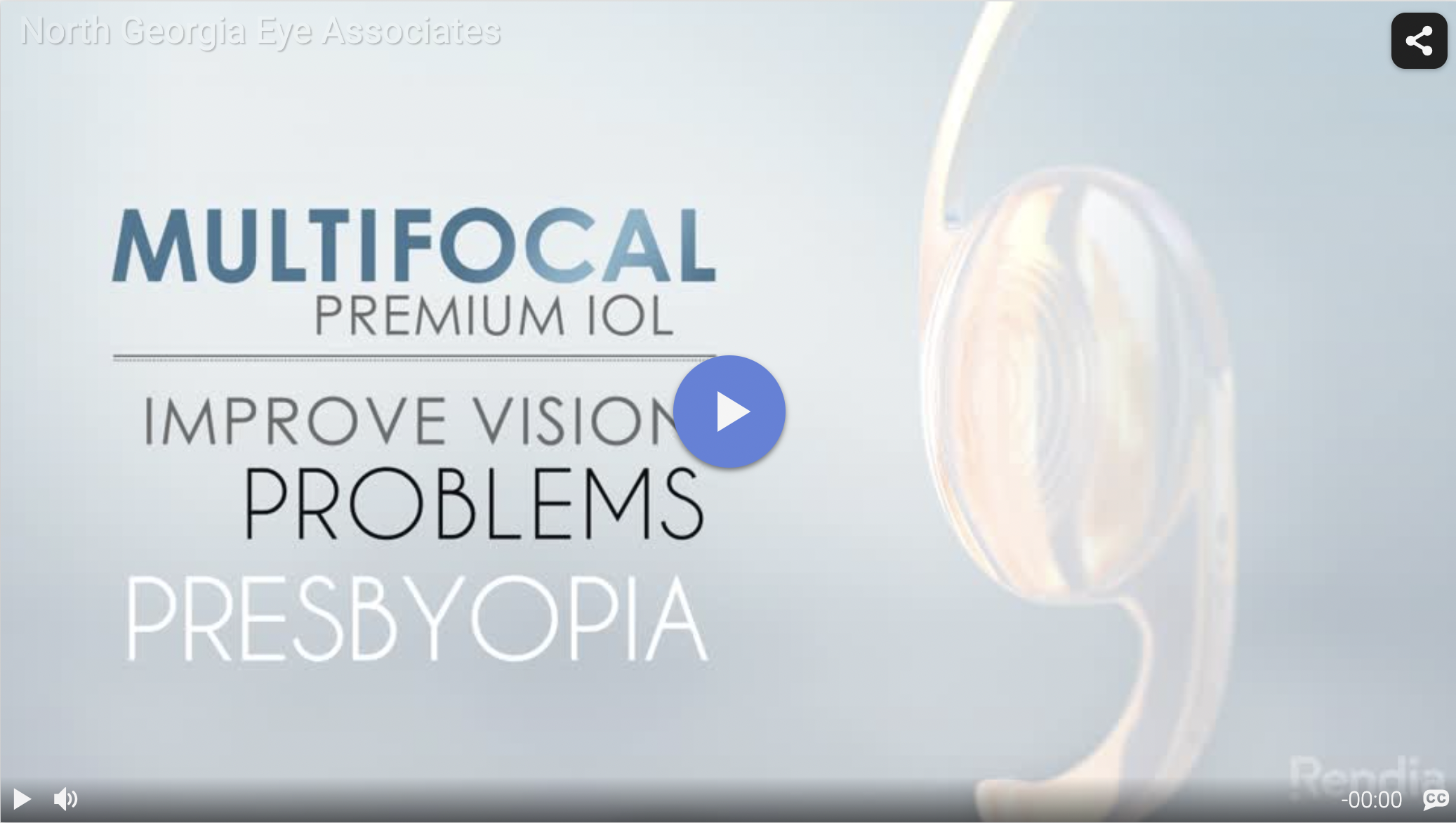PRK

What is PRK?
For those who may not be suitable candidates for LASIK and are looking for permanent vision correction options, PRK can be an excellent choice. At North Georgia Eye Associates, our experienced eye surgeons can help you determine if PRK can help you gain the visual freedom you desire.
Photorefractive keratectomy, or PRK, is a refractive procedure that can correct myopia (nearsightedness), hyperopia (farsightedness), and astigmatism. Due to medical issues such as thin corneas, certain patients are not good candidates for LASIK.
If you are not a good candidate for LASIK, your North Georgia Eye Associates surgeon may recommend PRK to correct your vision instead. The results of PRK are virtually identical to LASIK.
PRK can allow you to experience greater visual independence and significantly reduce your reliance on visual aids like glasses and contact lenses.

What Happens During PRK?
During a PRK procedure, your PRK surgeon will use a special laser to reshape the cornea, which is the clear front surface of the eye. This reshaping process aims to improve how light enters the eye and focuses on the retina, ultimately enhancing vision.
Unlike LASIK, PRK does not involve creating a flap in the cornea. Instead, the outer layer of the cornea, known as the epithelium, is gently removed to expose the underlying corneal tissue.
The laser is then applied to this tissue, sculpting it to the desired curvature based on the patient’s refractive error. A bandage contact lens will be placed over the eye to aid healing, and you can go home the same day.

Who is a Good Candidate for PRK?
PRK is a great option for permanent vision correction, allowing you to finally experience a world without relying on glasses and contact lenses. However, before you can schedule any refractive procedure, such as PRK, you must find out if you qualify.
The only way to find out if you’re a good candidate for PRK is by having a complete evaluation. During this evaluation, your eye doctor will examine your eyes and ask about your vision goals. If you have thin corneas that wouldn’t work well with LASIK flaps, PRK could be a viable alternative.
Your eye doctor will want to ensure that you have had a stable glasses prescription for at least a year, are in good general health, and do not have any eye conditions that could compromise your results or recovery. To determine if you may be a good candidate for PRK, schedule a consultation at North Georgia Eye Associates.
What if I’m Not a Good Candidate for PRK?
Not everyone will be a good candidate for PRK. If you don’t qualify for PRK, your eye doctor may recommend an alternative procedure, such as clear lens exchange or CLE.
Also known as refractive lens exchange, CLE involves replacing the eye’s natural lens with an artificial intraocular lens, or IOL. This procedure is often recommended for individuals with higher refractive errors or other issues that make them unsuitable candidates for PRK or LASIK.
If PRK is not an option, your eye doctor at North Georgia Eye Associates can recommend the most suitable procedure based on how healthy your eyes are, refractive error, and other factors.


